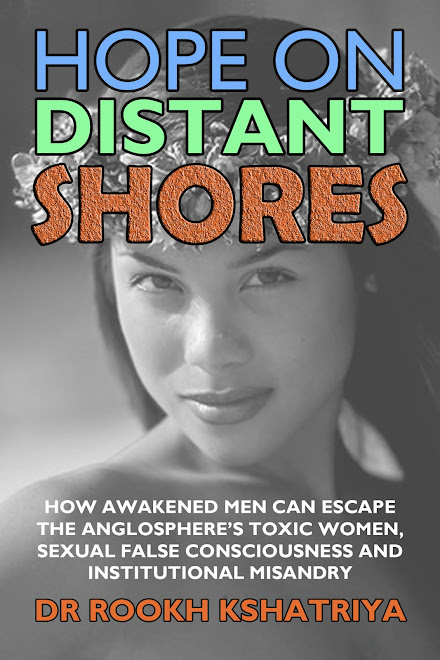
In his superb introduction to evolutionary psychology, The Moral Animal, Robert Wright of Harvard cites compelling evidence that low status sons of any species have less value to their parents than low status daughters. This is because a low status male is unlikely to reproduce at all, while a low status female can still attract a sex partner. Florida pack rat mothers, if fed poorly, will let their sons starve to death, while daughters nurse freely. In fact, many species will have more daughters than sons, if conditions are less than auspicious.
This also seems to be true of humans. In North America, more than half of the daughters born to low income women were breast fed, less than half the sons were. More dramatically, low-income women, on average, had another child within 3.5 years of the birth of a son and within 4.3 years of the birth of a daughter. Clearly, daughters are more valuable to the lower social classes than sons (Wright, pp.171-173). As the present author understands it, British underclass 'chavs' produce disproportionately high numbers of daughters, which, given the foregoing, is interesting food for thought.
This gender distinction seems to be carried into post-catastrophe population demographics. It has long been noted that, in the aftermath of catastrophes like 9/11, somewhat more girls than boys tend to be born:
When a woman was under stress, either individually or during a war or natural disaster, more girls were conceived.
(http://www.news-medical.net/news/2004/07/10/3233.aspx)
What is the explanation for this? It has been suggested that more weak male fetuses are lost and damaged in the womb during/after disasters because the crisis conditions in the aftermath of such catastrophes will disadvantage a weak male in his struggle to reproduce. Hence, the female body has evolved to abort such males in inauspicious conditions, since they are a 'waste of time' in the strictest biological sense. On the other hand, a female will have no difficulty getting impregnated, no matter how weak or unhealthy she is. Her reproductive potential is guaranteed by her gender, which is why rather more girls are born in the aftermath of natural disasters. Nature abhors waste: and sickly males in such circumstances are simply a waste of time and resources.

Again, it is notable that certain debilitating conditions like photo-sensitive epilepsy are far more commonly found among females (in fact, 70% of epileptics are female). This makes perfect sense in evolutionary terms - a male with epilepsy would not have been a viable partner for most women for most of history, or would have been easily killed in intra-male conflict for women. By contrast, epileptic women would have got to reproduce anyway, allowing these disorders to become almost gender-specific characteristics. Matrilinear peoples/cultures like the Jews or Ba'hais have always been vulnerable to persecution, and the matrilinear custom has of course developed in response to the fact that women are far more likely to survive pogroms and other forms of ethnic cleansing than men - often being raped and coerced but still surviving, unlike the males of their community. This was brought home in the recent Balkans conflict, where male-specific gendercide was commonplace.
Indeed, young girls often display archaic characteristics reminiscent of distant ancestors. Pashtun girls in Pakistan sometimes throw fair hair and caucasian features, suggesting their Greek ancestry (Pashtuns claim heritage from Alexander's invading army). Mitochondrial (female only) DNA shows far greater inflection than the male, suggesting that males are subject to far greater reproductive competition. This is why geneticists study mitochondrial DNA to isolate archaic genetic residues.

I believe that these facts can shed an interesting light on Anglo-Saxon feminism, and can explain why its core assumptions are so flawed. Feminists invariably assume that all males are enormously advantaged over all females - a bizarre assumption to males of middle or working class origins, whose daily lives are characterized by extensive gender discrimination in health, education, the media, politics and law. Now, given the foregoing discussion, it is obvious that feminists are 'missing the trick' because, hailing overwhelmingly from the affluent classes, they are blind to this ubiquitous discrimination against low-status males. Robert Wright shows that only high status males are shown preferential treatment by their parents - most males are not. Having experienced this pro-male bias, Anglo feminists mistakenly assume that the broad male masses in Anglo-American society are similarly advantaged - but, as we have seen, nothing could be further from the truth.
Am I not clever? A matchless, paradigm-shifting evisceration of feminist assumptions in a few paragraphs, backed by the latest scientific research, and you get it FREE on Anglobitch! If you cannot beat any feminist or mangina armed with the relentless logic of this peerless post, you need a cold shower.























